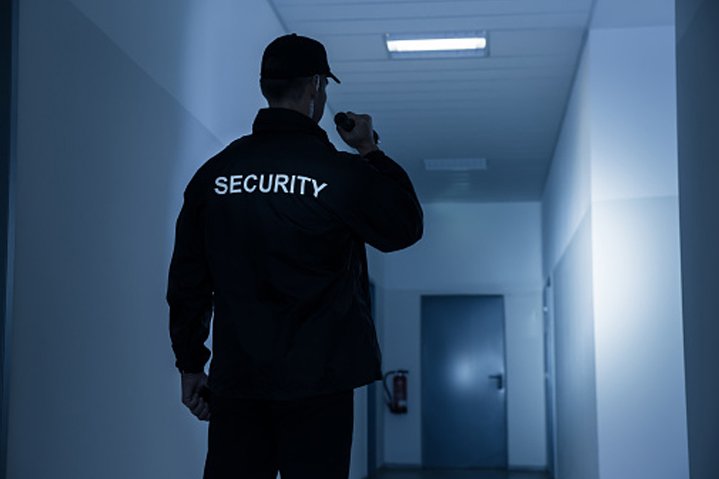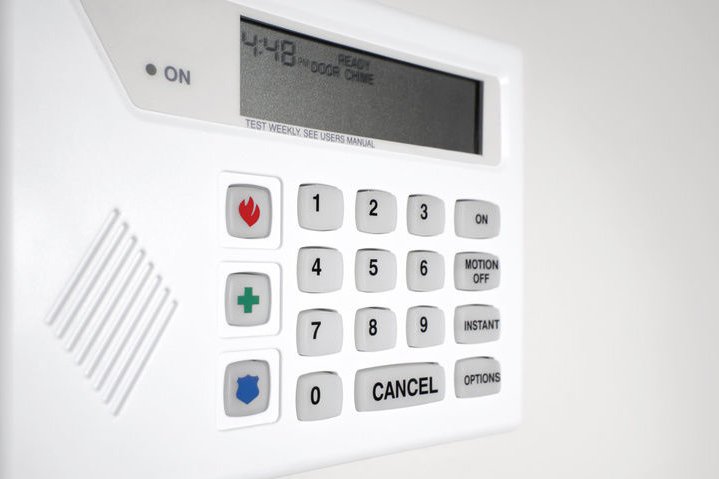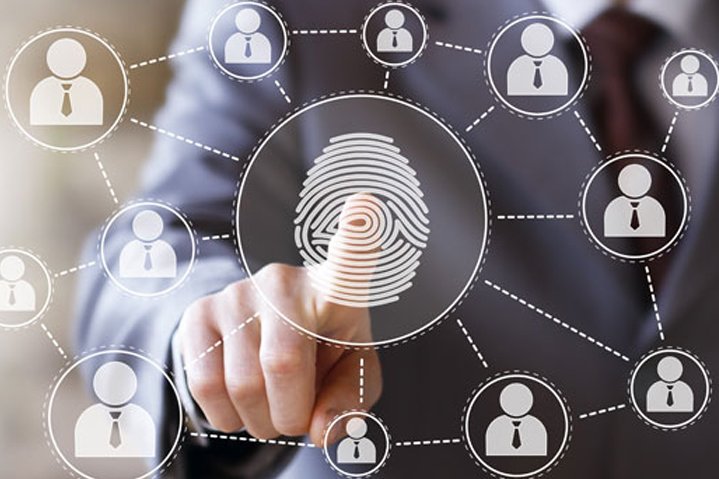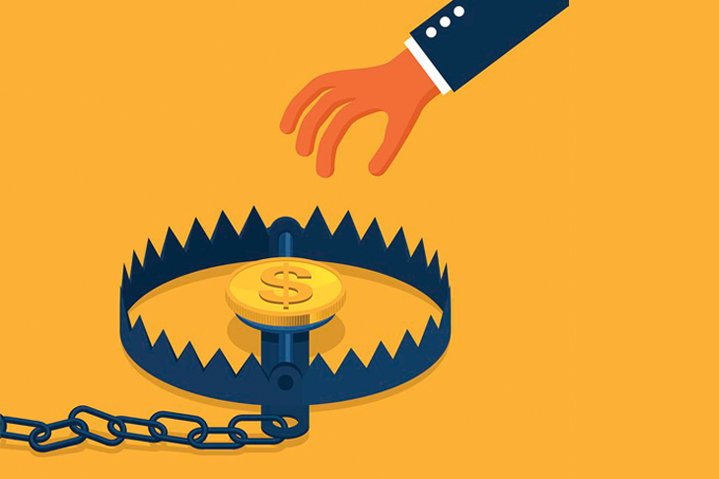
IMPORTANCE OF SECURITY
The Rising crimes communal riots, Social disturbances and acts of terrorism has posed a serious challenge to social community security. The Armed Forces and various police organizations are fully stretched in their primarily role and are unable to face this challenge, This Huge void has to be filled in by the PSS, For which it is personnel should be well-trained. The mere presence of a security guard at a premise is a major deterrence for any illegal, inappropriate and unlawful activity. It is important for a security guard to understand the difference between the private security and police functions :-
- a) Private security functions mean preventing the culprit from committing crimes like theft, trespass etc.
- b) Police functions mean to catch the culprit after he has committed the crime/offence and then take legal action against the culprit to bring him to justice.

THE SECURITY SYSTEM
"Watch the little things; a small leak will sink a great ship, said Benjamin Franklin, one of the Founding fathers of united state of America.
The above quote clearly amplifies that a small mistake committed by a security guard can lead to collapse of the existing security system, resulting in damages and losses to the organization.

WHAT IS SECURITY SYSTEM ?
Every system consists of persons, equipment or infrastructure and processes to run it.
The same holds good for private security, wherein it takes the shape of an 'Integrated Security System'.
An " Integrated Security System" of any organization is designed by experts in the field as per ground requirements. The major constituents parts of any security system are given below :-
- a) Principal Employer (Organization)
- b) Service Provider (Security agency)
- c) Security Guard (Trained Guard)
- d) Security Infrastructure (Building and Equipment)
- e) Written Security policies, Procedures and instructions.
RISKS AND THREATS
- Definition of Risk : Risk means a situation that involves being exposed to danger, which can result in loss or damage to life or property or both.
- Definition of Threat : Threat means an expression of an intention to inflict an act of crime, injury, or punishment. It is also regarded as possible danger or harm to life or property.

TYPES OF RISKS AND THREATS
Some of the risks and threats which a security guard may face during the course of his duty are as under :-
- a) Unauthorized and unlawful entry into a premises
- b) Theft, pilferage, burglary and robbery
- c) Loitering and littering in the premises
- d) Labour unrest, strikes and crowd formation
- e) Accidents
- f) Medical emergencies
- g) Fire Incidents
- h) Natural and manmade hazards
- i) Aggressive and drunken behavior
- j) Assault and violence
- k) Kidnapping
- l) Suicide, attempt to murder and murder.
- m) Eve-teasing and sexual harassment & assault
HAZARD / DISASTER AND EMERGENCIES
- Definition of Hazard : A Hazard is defined as dangerous situation that presents a level of threat to life, health, Property, or environment. Hazards are mostlydormant or Potential. However, once a hazard becomes active, can lead to a situation of emergency.
- Types of Hazards : Hazard are mainlyof five types : physical, chemical, biological, psychological and radiation hazards.
- Definition of Disaster : A disaster is defined as an occurrence causing widespread destruction and distress causing sudden loss of life and property and damage to environment..
- Types of disasters : Disasters are of two types :-
- a) Natural disasters : These are caused by the forces of nature, such as earthquake, flood, drought, landslide, volcanic eruption, cyclone, tsunami, et.
- b) Manmade disasters : These are caused by human activity or interference; such as war, blasts, acts of terrorism, accidents, chemical/gas/ opil leaks, environmental damage, etc.
- Definition of Emergency : An emergency is a situation or an occurrence happening suddenly and unexpectedly that demands immediate response and assistance to minimize loss of life and property.
ORGANIZATIONS DEALING WITH HAZARDS/DISASTER AND EMERGENCIES
The Police :
The Police is an organization who is constitutionally empowered by the state to enforce law and order, protect property, and control civil disorder. Their powers include lawful use of force.
The Police :
A Police station or station house is a building frim wher local police officers and staff operate and discharge their legitimate duties. Thw police station generally houses offices and accommodation for its personnel and a parking lot for vehicles. The staton house is also designed to have adequate accommodation for locker rooms, temporary holding cells and interview/interrogation rooms.
The Senior most officer is called as satation House Officer (SHO) of the rank of inspector of Police.
For maintaining law & order and quick reaction in cities and towns, police has police control room (PCR), where any person can inform the police about a crime or incident. The Vehicle used by police to reach a place a place of incident is called a PCR van.
Fire Department :
A fire department or fire brigade, which is also known as fire service is responsible for the provision of fire protection in a city and also take appropriate action during natural calamities.
A Fire Brigade has a number of fire stations and personnel. Its strength will depend upon the size of town/city it is designed to provide fire protection.
A fire station is a building including open area designed to accommodate firefighting equipment such as fire engines, personal protective equipment, the bulding also has offices, stres and a dormitory with living facilities for the fire fighters.
The fire station has a control room, which is manned round the clock. It is here that all calls from public regarding fire accidents are received and acted upon.

WHAT IS SECURITY ?
Security is defined as :-
- a) 'The State of being or feeling secure'.
- b) 'The Safety and Protectionj of a state, organization or property'.
In other words, Security is a state in which one feels secure from any fear and danger to life and property.
While the Security of the Nation from external aggression, internal disturbances, militancy, terrorism etc., is the prime responsibility of its armed and central/civil police forces; the private security sector plays a pivotal role in providing "community security", particularly with regard to life and property. In today's scenario, security of information has also become a serious concern. There are many examples wherein the leakage of information to an unauthorized person / individual has caused immense damage to nations, organizations, societies individuals, etc.
In this Chapter we shall discuss "Private Security", which has three main elements as undet :-
- a) Protection of life
- b) Protection of property
- c) Protection of information.
The Security guard, which Comprises more than 90% workforce of the PSS, Plays an Important role in Providing Community Security. A well-trained security guard should be synonymous with each of the eight alphabets of word 'Security'.
Principal Employer (PE) : Any Organization, be it the government or private, which either owns or manages the business and its functions, and has its security system in place to protect its business and other interests by hiring the services of a service provider(SP) for the provision of security guards at his premises on contract basis.
The PE is responsible for creating security infrastructure, laying down relevant security policies and procedures and selecting a competent service Provider delivering security services.
Service Provider (SP) : An SP could be an individual or private security agency which provides security services to the principal Employers at their premises, through the delivery of work executed by the security guards. The SP is responsible for training, discipline, conduct and efficiency of the security guards and other staff deployed.
The PE is responsible for creating security infrastructure, laying down relevant security policies and procedures and selecting a competent service Provider delivering security services.
Service Provider (SP) : An SP could be an individual or private security agency which provides security services to the principal Employers at their premises, through the delivery of work executed by the security guards. The SP is responsible for training, discipline, conduct and efficiency of the security guards and other staff deployed.
Security Guard : Any Citizen of india, duly verified, trained and engaged by the SP to perform security duties at the premises of the principal employer is a security guard. After the prescribed training as per PSARA, the guard becomes competent to be called as a Trained Guard(TG). He is the main link of the security system, being the actual man on ground, who notices an responds to risks and threats first.
The Triangle of security Interdependence
The above three entities i.e., the PE, SP and the TG form a triangle with three equal sides making it a triangle with three equal sides making it a triangle of security interdependence, due to two way flow of information between PE, SP and the TG, as Shown with the help of arrows.
The TG Plays an important role in the system, hence shown at the apex of the triangle os security interdependence, due to two way flow of information between PE, SP and the TG, as Shown with the help of arrows.
The TG plays an important role in the system, hence shown at the apex of the triangle of security interdependence. This triangle will always be strong and robust, if the TG performs his duties as trained.
A diagrammatic depiction of the "Triangle og Interdependence. This triangle will always be strong and robust, if the TG performs his duties as trained.
PRIVATE SECURITY ORGANIZATION
Civil society looks up to the PSS, which has a standing force of almost 70,00,000 security personnel for providing the security.
There are approximately 15,000 of private security agencies (PSAs), who have private security personnel on their rolls.
In 2005, private security agency (Rrgulation )Act-2005 (PSARA-2005) was passed to regulate the functioning of the PSAs.
ROLE OF PRIVATE SECURITY SECTOR
The role of the private security sector (PSS) is to provide guarding services to society, commerce and industry and assist law enforcement agencies in response to the risks and threats challenging the society, commerce and the industry in their day to day working and operations.
WHO IS A SECURITY GUARD ?
In Reality, Security Persons are Security Providers!
In General, the word 'Guard' means :-
- a) To Watch or Protect
- b) A person Who Keeps a watch, or guards a place.
PRIVATE SECURITY GUARD
A security guard is usually a privately employed person who is paid to protect property and/or people. He acts as a deterrent to criminal and anti-social elements when deployed to protect against the activities such as trespass, theft, vandalism, etc.
A security guard is required to wear a uniform under PSARA-2005, unless permitted for a definite period or specific location or task by the employer.
A security guard's main task is to protect life and property, by being physically present; maintaining vigil against illegal and anti-social activities; carrying out patrolling; observing area of responsibility through various equipment for the signs of crime, disorder, hazards and emergencies. A security guard should detect a problem and report the same to the supervisor or emergency services, well in time.
SECURITY SYSTEM
To ensure protection to life, property and information in any organization – private or government set-up, it is important that a sound security system is put in place, which will deny access to unauthorized persons- anti-social elements, intruders, burglars, etc. from entering a premises. Effective controls and monitoring for safety and security are exercised by deploying efficient physical security supported by security equipment in the premises forming different layers and systems as under :-
- a) Peripheral security system : The security system deployed and installed to cover the approaches to a premises, such as boundry wall, wire fencing, gates watch tower, security lights, etc. form part of peripheral security system.
- b) Security and surveillance equipment : To strengthen above mentioned physical security components, security and surveillance equipment such as sensors, alarms, CCTV Camera are installed for early warning, monitoring and recording of the threats & risks to life and property.
- c) Access control system and equipment : To check unauthorized persons, vehicles and materials from entering or leaving the premises, a security system of checking identity of persons and authorization for vehicle and material movement is installed.
- d) Screen and search equipment : for searching persons, baggage and vehicles for prohibited and unauthorized items and materials.
- e) Sensors and alarms : for threats and risks regarding safety and security of life and property are installed in a premises to get early warning of an accident or incident.
- f) Communication system : For passing on information regarding security situation system is needed.
Security personnel are the human element of an integrated security system. They carry out security operations, operate security systems and respond to security situations.
It is, therefore, important to learn about such security systems in use to ensure security of people, premises and information.